The Third Time Theory
"The first time I strolled through Udaipur, it was like stepping into a city that hovered between the lake and the sky, afloat on its own reflection"
The first time is this unfiltered sense of exhilaration. It is filled with breathlessness and anticipation as we stand on the precipice of something new, wondering if we will ever feel the same way again.
The first time I strolled through Udaipur, it was like stepping into a dream: a city that hovered between the lake and the sky, afloat on its own reflection, its palaces flickering in the water like mirages, its damp stone-cobbled lanes whispering tales from antiquity.
It was a city that was at once too pristine, too still, and too beautiful to be real. I remember looking at Lake Pichola, at how the water folded into ripples under the lazy glide of a boat, and feeling like I was inside a painting that was alive just for me. Everything was heightened—the scent of the air after the morning prayers, the cool stone of City Palace under my palms, the way the sky blushed pink at sunset like it, too, was in love.
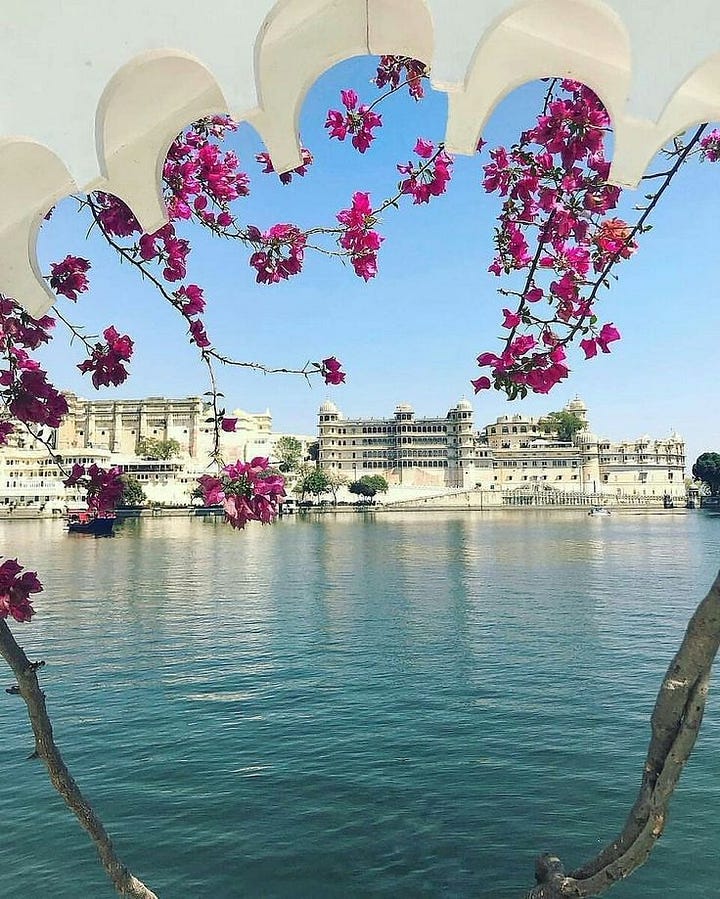
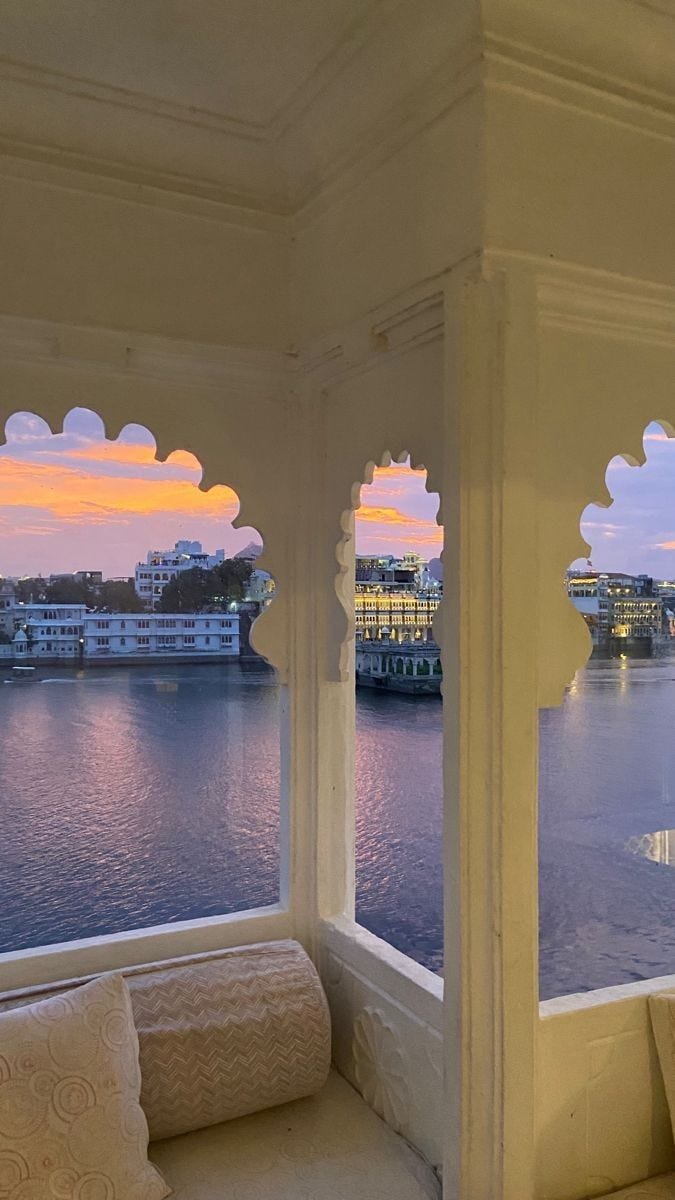
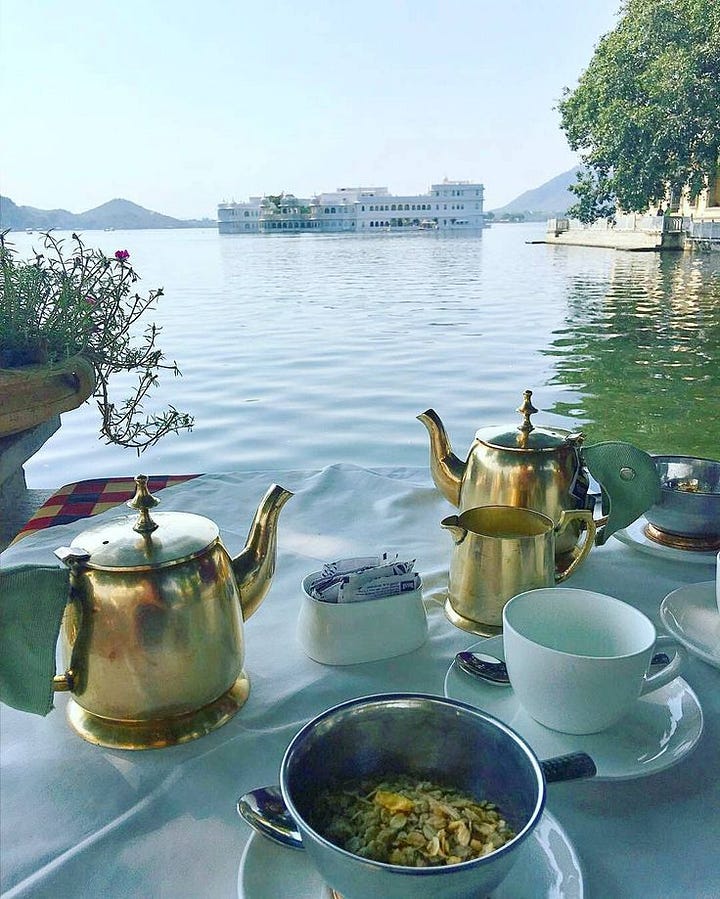
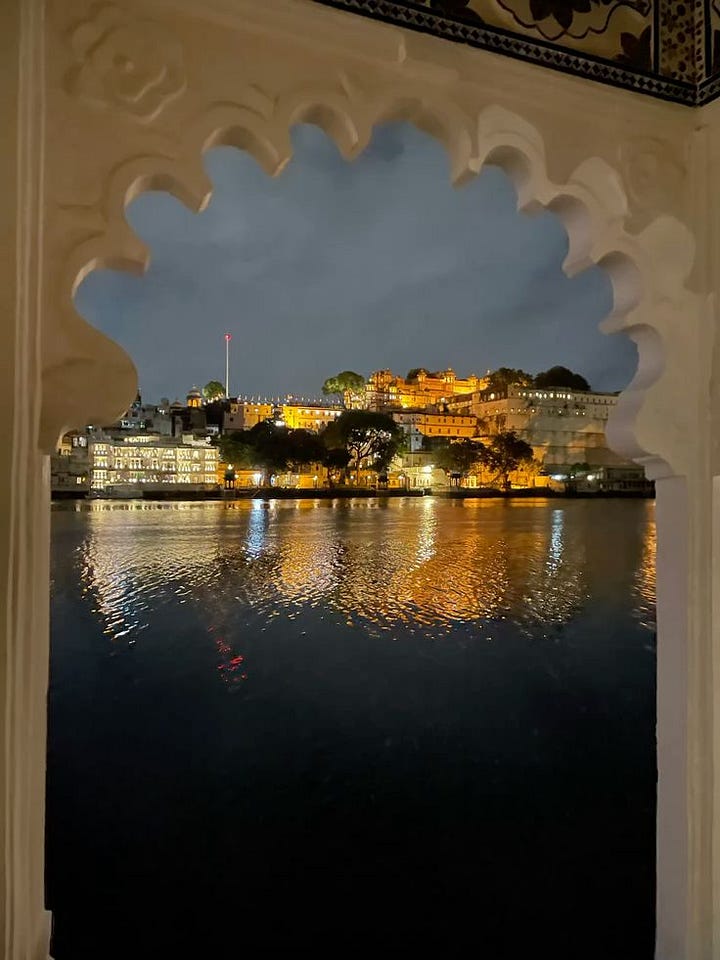
Jaipur, too, was picture-perfect. Its bazaars thronged with life as the city blushed under the sun: ochre at dawn, coral by noon, and a deep velvet rose in the evening glow. I remember feeling a thrill at the sheer beauty of it all, at how Jaipur felt like a storybook come to life, where history wasn’t something trapped in books but something you could touch and breathe in.
But the second time was different. The second time, I was not discovering these places – I was remembering them. The second time, I did not chase wonder; I settled into it. I no longer looked at the city with wide eyes – I closed them, and I remembered: where to find the best chai, when the lake turns into melted gold, and where the city’s hush is most beautiful.
Indeed, the second time is not about discovering something new but about settling into it.
And isn’t this true of everything?
The second time falling in love is quieter. The first arrives like an ambush—uncontained, electric, convinced it is the only thing that will ever feel this way. But the second does not demand to be believed—it asks to be understood. It lingers in the small spaces, in steady knowing, in the ease of two people learning how to stay. It does not insist on grand gestures; instead, it lives in the comfort of ordinary moments—the way two hands find each other on a crowded street, the way a shared silence speaks louder than words.
The second love is not lesser; it is simply less desperate to prove itself.
The same is true of anything we return to. The first time writing a novel is an act of faith, chasing an idea without knowing where it will lead. The second time, we know the shape of the process, the patience it requires, the places we will get lost. The first time traveling alone is an act of defiance, proof that you can survive the unknown. The second time, you move through the world not as a stranger but as someone who belongs. The first time you do something, you ask: Can I do this? The second time, you know you can, so you ask a different question: How can I do this better?
Maybe that is why I return. Not for the thrill of the first, but for the depth of the second. The second time is not lesser—it is simply softer, steadier, more certain. It is not about being swept away—it is about choosing to stay.
But if the first time is discovery, and the second is understanding, then the third is something else entirely.
The third time is ease. It is walking through a city without reaching for the map, ordering without hesitation, knowing not just where to go but where to linger. It is when love stops being a question and becomes something certain. The moment when the unfamiliar becomes ours.
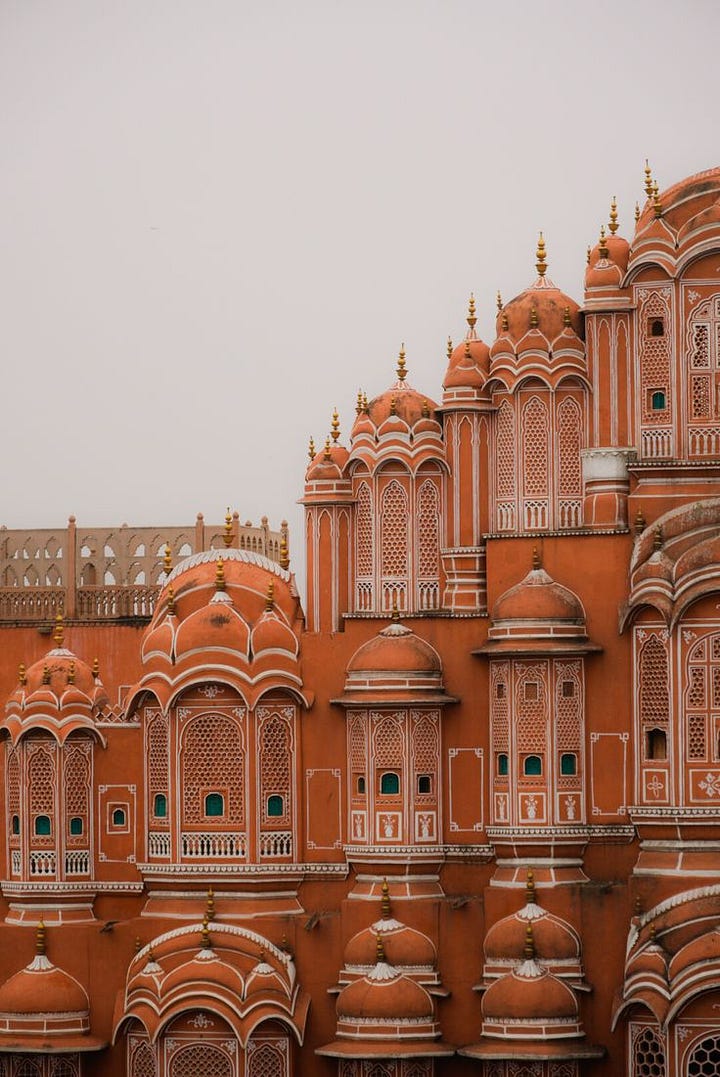
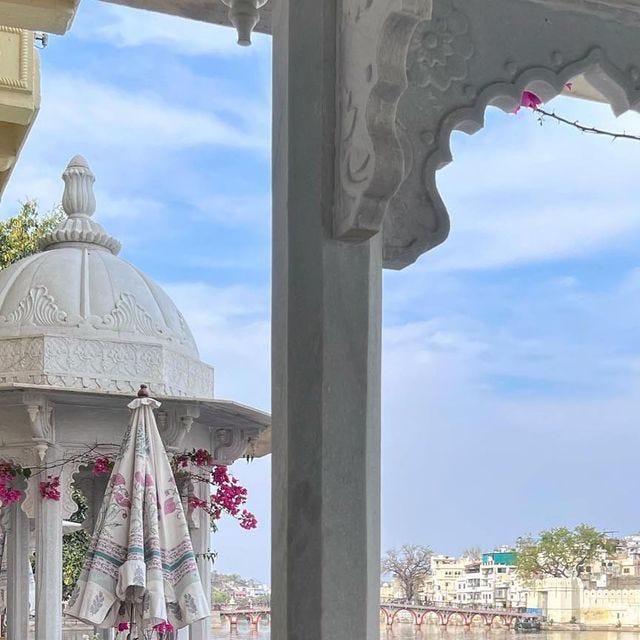
The third time in Udaipur, I did not rush to the palaces. I did not take a hundred photos. I did not try to hold onto the city as if it might slip away. Instead, I walked slowly. I knew exactly which café had the best view at sunset, which shopkeeper would greet me with a knowing smile, which turn in the road would reveal the lake at its most breathtaking. I did not need to be amazed anymore—I simply needed to be there.
Maybe that’s why they call it third time lucky. Not because the first two were wrong, but because by the third, we are finally ready to get it right.
An abridged version of this article was published in The Hindu on March 23, 2025, under the title “Second time is steady.” Read it here.






Glorious pictures under a finely written, self-styled travelogue.
Perfectly stated. I love slowing down and soaking in the surroundings. I must visit Udaipur and Jaipur now.